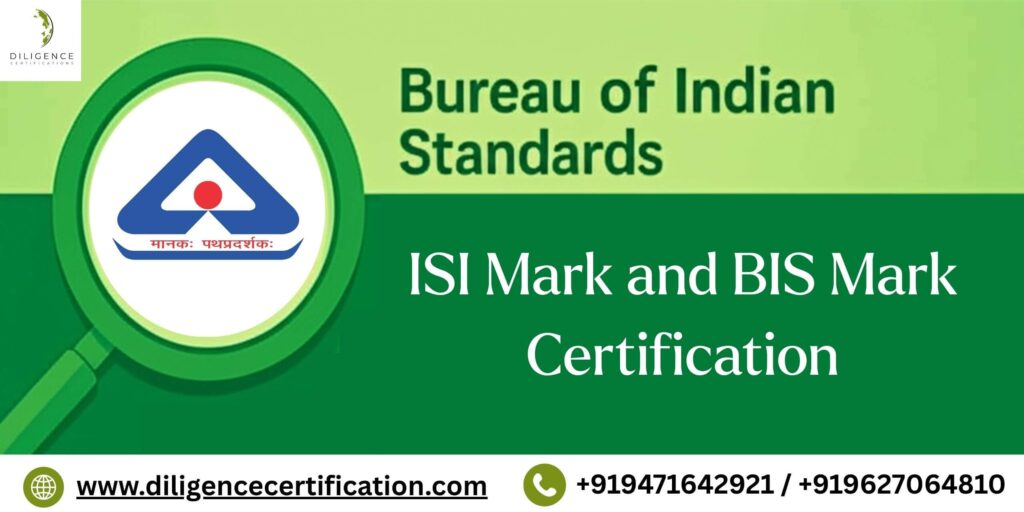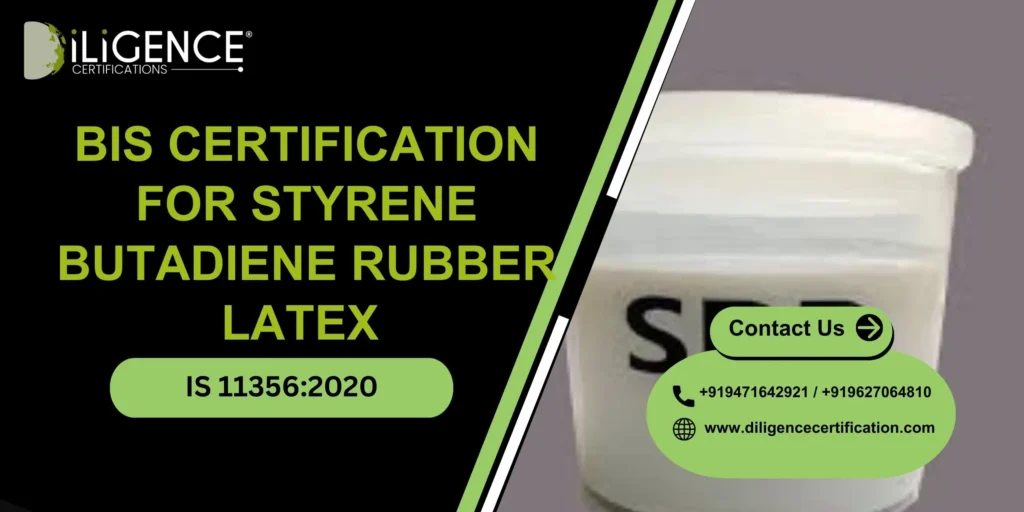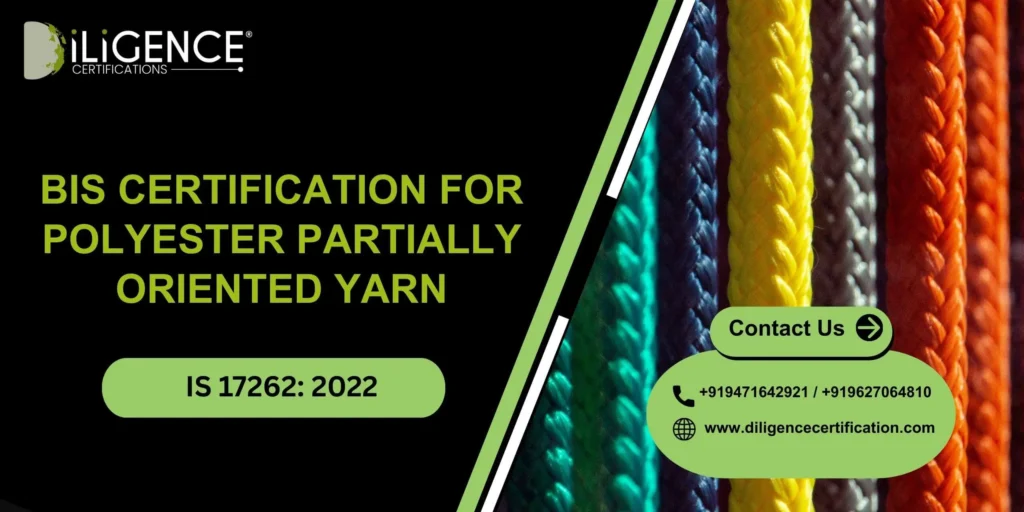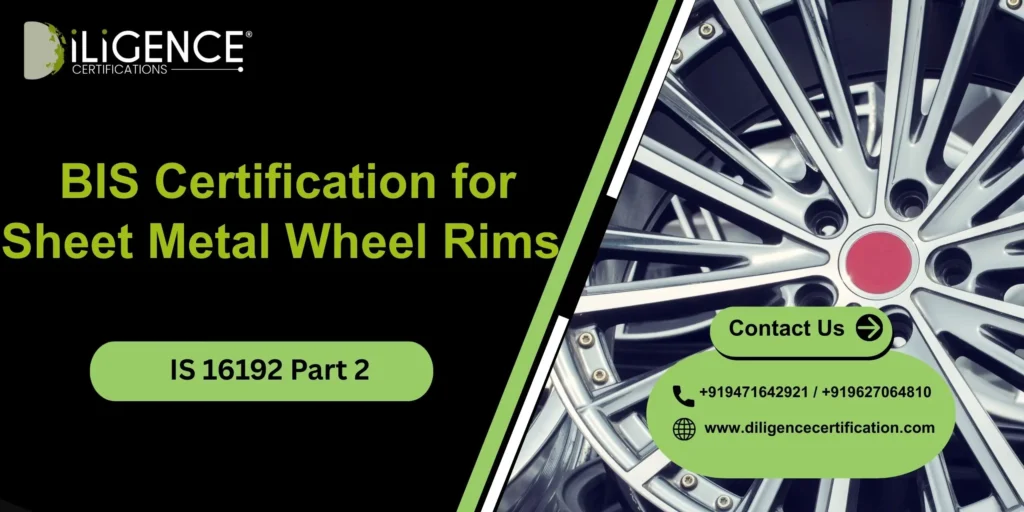- The ISI mark and BIS mark represent product quality and safety compliance under the Bureau of Indian Standards (BIS).
- BIS is mandatory for many Indian products under government regulations.
- The ISI mark verifies product safety and consistency under Indian Standards, reassuring consumers nationwide.
- ISI Certification guarantees thorough factory audits plus lab-tested performance before market entry.
- BIS Certification supports brand trust, legal compliance, and government tender eligibility.
Introduction
The BIS mark is a more complex framework covering ISI Certified Products and CRS Registered Products that satisfy regulatory acceptances. In 2022, a fan manufacturer located in Pune receives a significant order request from a department of the state government. Everything appeared to be in order until the shipment was rejected at inspection because of no ISI on the fans.
That moment taught them a hard lesson: without BIS Certification, your product can’t even cross state-level procurement filters. This story is familiar to hundreds of brands across India. Whether it is a water heater, a circuit breaker, or a food-grade pressure cooker, the Bureau of Indian Standards (BIS) regulates compliance through the mark. It’s not just a sticker — it is your ticket to Indian market trust.
What is ISI Mark?
The ISI is in essence a hallmark of quality for products produced and/or sold in India. It means strict compliance to the relevant Indian Standards (IS Codes) and assures the buyer that the product is safe, durable, and reliable. Consumers across India have trusted the ISI mark since 1955, acknowledging that it is the result of considerable testing, periodic surveillance and evaluations of manufacturing facilities.
What is BIS Mark?
The BIS mark goes beyond the ISI mark to cover all product certifications under the Bureau of Indian Standards. It also includes electronics under the Compulsory Registration Scheme and foreign manufacturers’ approvals. BIS serves as an umbrella of trust for all Indian standard compliance.
What is ISI Certification?

The ISI Certification is the official licensing process that allows a manufacturer to use the ISI mark. The path to ISI certification involves some steps: writing an application, having the product tested in a BIS-recognized testing laboratory, allowing inspection of the manufacturing processes and facilities, and ongoing surveillance audits. After this is all carried out, only then does a company have the right to use the ISI Mark on its products.
What is BIS Certification?
BIS Certification is the formal endorsement process that occurs under the Bureau of Indian Standards Act, which is designed to ascertain that the item(s) being manufactured will meet Indian standard of quality, safety, and performance. BIS Certification applies to everything from electrical items to kitchen items and is thus a very important quality-assurance framework in India.
In most cases, the BIS issues an ISI mark after verifying your product against the relevant Indian Standard (like IS 302 for home appliances). BIS Registration, on the other hand, generally applies to electronics under the Compulsory Registration Scheme (CRS). These regulatory pathways together build what people often call the “BIS mark“.
Difference Between ISI Mark and BIS Mark
ISI Mark
The ISI mark is a certification symbol used on products conforming to Indian Standards. The ISI symbol is issued after a detailed factory inspection and testing of product samples in BIS-recognised labs. Think of it as the BIS’s way of telling consumers, “This meets the Indian Standard.”
BIS Mark
The BIS mark is a broader term covering compliance under BIS, including ISI-certified products as well as products registered under CRS (for example, mobile phones or LED drivers). International clients sometimes confuse the two, but the ISI mark is a subcategory under the BIS mark family.
Brand Commentary
A Gurgaon-based mixer grinder brand shared that after putting the ISI mark on its products, complaints dropped by 40% because end-users trusted the symbol. That is the power of the ISI mark — it builds trust even among rural or small-town buyers who don’t always understand technicalities.
BIS Certification Process Explained

The BIS certification process generally includes these steps:
- Application Filing — complete Form V with product details
- Sample Submission — submit to a BIS-authorised laboratory
- Factory Audit — BIS officers visit your plant to check quality systems
- Testing & Report — your product is tested against the relevant IS code
- Grant of Licence — if successful, you can affix the ISI mark or BIS mark
This process can take 30–90 days depending on your product category, document readiness, and lab slots.
“One missing test report can delay certification by months” — a Delhi-based compliance manager shared during a BIS workshop last year.
Why is BIS Certification Mandatory?

The Indian government made BIS certification mandatory for safety, environmental protection, and consumer interest. Imagine a substandard electric iron catching fire — the ISI mark prevents this risk by enforcing the minimum safety norms. That is why over 450 products are on the mandatory BIS Certification list, from helmets to household appliances.
Failure to comply can result in customs seizure, fines, and a complete ban on sales. In other words, skipping BIS is not worth the risk.
BIS Registration vs ISI Certification
BIS Registration (CRS Scheme)
Products like mobile phones, power banks, and LED bulbs fall under BIS Registration, also known as Compulsory Registration Scheme (CRS). Here, factory audits are usually not mandatory, but product testing and registration are compulsory.
ISI Certification
ISI Certification requires a complete factory audit plus product testing before affixing the ISI mark. So ISI is a bit stricter than the CRS route.
- ISI Certification = Strict, factory-audited, covers household/industrial goods
- BIS Registration = For electronics under CRS, less intrusive but mandatory
Global Certification Equivalents
While India uses the ISI/BIS mark, other countries have similar frameworks:
- CE Marking (Europe)
- UL Certification (USA)
- CSA (Canada)
- SASO (Saudi Arabia)
However, note that these marks are not interchangeable. If you are selling in India, you need a BIS mark even if you already have CE or UL.
A Hyderabad-based solar panel maker had its shipments stuck at Chennai Port because it assumed CE approval was enough. That mistake cost them four months of business.
ISI Mark and BIS Mark Documents Required
To apply for ISI or BIS certification, manufacturers generally need:
- Factory license documents
- List of machinery and equipment
- Quality control manual
- Raw material specifications
- Test reports from BIS-recognized labs
- Trademark registration (if applicable)
- Authorised Representative details (for foreign manufacturers)
- Factory layout plan
- Proof of business registration
These documents help the Bureau of Indian Standards verify the manufacturer’s quality system before issuing the license.
BIS Certification Process
- Online application through BIS portal
- Product testing via BIS-recognized laboratory
- Factory inspections (if ISI route)
- Compliance report review
- License grant and periodic renewal
Internationally, similar processes include CE technical file review (Europe), UL field evaluation (US), and G Mark (Gulf countries), but BIS is the only path to Indian market compliance.
Benefits of BIS and ISI Certification
- Builds trust among Indian buyers
- Protects your product from legal hurdles
- Facilitates easy market access to government tenders
- Protects public safety and the environment
- Boosts brand perception, especially in price-sensitive markets
Requirements for BIS Certification
- Fully functional product samples
- Technical construction files and manuals
- Factory location and QC plan
- Authorised signatory details
- Valid trade or manufacturing licence
- Labelling artwork as per BIS guidelines
If you miss any of these, your file can be rejected, restarting the clock. Triple-check them before submission.
Why Choose Diligence Certifications for BIS?
Diligence Certifications supports over 500 clients in India and abroad for BIS and ISI approvals. They:
- Maintain direct liaisons with BIS officers
- Provide label pre-checks to avoid rejections
- Offer documentation support and fast tracking
- Deploy engineers nationwide for factory audits
- Handle renewals and scope extensions seamlessly
“We saved four months working with Diligence Certifications, compared to running pillar-to-post ourselves.”
Their proven track record makes them a trusted partner for BIS compliance.
BIS And ISI
- ISI mark guarantees Indian Standard compliance for consumer trust
- BIS mark covers both ISI products and CRS-registered electronics
- BIS Certification prevents customs delays and legal penalties
- International marks (CE/UL) cannot substitute BIS for India
- A reliable BIS consultant saves time, money, and market entry barriers
Why Choose Diligence Certifications for ISI Mark And BIS Mark?
Finding the right consultant can be the determining factor when it comes to obtaining ISI Mark and BIS Mark Certification. Diligence Certifications has the right partner for businesses in India and the world. The following reasons:
- BIS and ISI Certification Experience – We have extensive experience with the Bureau of Indian Standards (BIS) processes that allow us to help manufacturers and importers obtain their BIS certification, with ease.
- Complete Solution – We have a complete service ranging from documents, application forms, product testing to approval and you can have peace of mind your certification journey is fully covered.
- Quick and Easy – We take the complexity of BIS/ISI standards and certification, making it simple and quick for you and saving your time and effort.
- Tailored Solutions – Every product and every company are different than other companies, therefore we work with you to devise individual and unique solutions to your certification needs.
- Industry Connections – With connections throughout the BIS labs and authorities, we can make connections on behalf of you, saving you time and efforts in reaching approvals much faster.
- Global Expertise, Local Reach – Whether you are an Indian Manufacturer, or you are an international brand trying to penetrate the Indian market, our services help businesses located in India, and businesses around the world.
- Approved by Leading Manufacturers & Importers – Our relationships with leading manufacturers, importers, and exporters show our credibility, reliability and commitment to excellence.
- Transparent and Affordable – We believe in being transparent with no surprises, there are no hidden fees or costs, and provide great value and lower overall costs, when compared to similar services.
Conclusion
In today’s competitive landscape, the ISI mark and BIS Mark are far more than symbols — they represent consumer confidence, legal compliance, and market accessibility. Whether you manufacture ceiling fans, water heaters, or high-end electronics, ignoring BIS is like driving without insurance — a risk not worth taking.
If you want your product to stand proudly in Indian markets, Diligence Certifications can guide you from application to final approval, ensuring you secure the BIS Certification without delays.
Frequently Asked Questions (FAQs)
What is the difference between ISI mark and BIS mark?
The ISI mark is for standard conformity under factory inspection, while BIS mark is the broader umbrella including ISI and CRS registrations.
Is BIS certification compulsory in India?
Yes, for over 450 product categories including electrical appliances, helmets, and more.
How long does BIS certification take?
Usually 4–12 weeks depending on product type, lab slots, and audit availability.
What happens if I sell without BIS certification?
You risk customs seizure, fines, and legal action.
Can CE marking replace BIS in India?
No. BIS is mandatory even if your product already has CE or UL approval.
What is BIS Registration under CRS?
It is mandatory registration for electronics like mobile phones, without a factory audit but with testing at BIS labs.
How much does BIS certification cost?
It depends on your Product category.
Does BIS certification expire?
Yes, generally valid for 2 years with renewal requirements.
Can Diligence help with BIS scope extension?
Absolutely, they handle scope amendments, product additions, and renewals smoothly.
Is ISI mark required for exports?
No, but BIS mark is required for selling in India, while for exports you may need CE, UL, or other marks.



 BIS Certification
BIS Certification
 CDSCO
CDSCO
 CPCB
CPCB
 LMPC
LMPC
 WPC Approval
WPC Approval
 Global Approvals
Global Approvals
 TEC
TEC
 ARAI
ARAI
 BEE
BEE
 ISO Certification
ISO Certification
 Drone Registration
Drone Registration
 NOC For Steel
NOC For Steel



















 Business Registration
Business Registration














 Legal Services
Legal Services
 Trademark Registration
Trademark Registration
 Copyright Registration
Copyright Registration
 Patent Registration
Patent Registration

















































